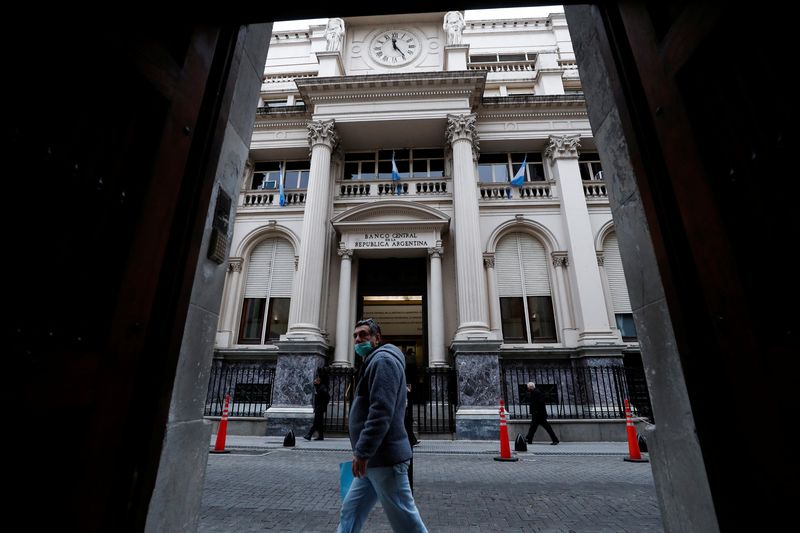By Walter Bianchi
BUENOS AIRES (Reuters) - Argentina's debt sank deeper into distressed territory on Friday, in just the latest week of sour financial news led by a battered currency, highlighting growing doubts about the near-term prospects for Latin America's third biggest economy.
The peso currency hit fresh record lows this week on a daily basis, trading in the parallel black market at nearly 350 per U.S. dollar on Friday, down nearly 4% from the previous day, according to private traders.
So-called over-the-counter sovereign debt slipped 1.1% overall on Friday, fueled by persistent investor doubts, even as yields for the benchmark Bonar 2030 bond exceeded 40% after its value tumbled 2.1%.
"The bonds are at default levels," said one trader.
On the political front, bad luck compounded the situation as the White House canceled a scheduled meeting next Tuesday between U.S. President Joe Biden and his Argentine counterpart Alberto Fernandez, due to the former leader's recent COVID-19 diagnosis.
Newly-installed Finance Minister Silvina Batakis has so far failed to calm anxious markets, despite her commitment to follow through with the country's current debt deal with the International Monetary Fund (IMF).
"The government is trying to do the bare minimum to preserve the IMF agreement, showing some fiscal restraint, a timid rate hike, a faster depreciation pace, more financial repression and import controls," according to a BTG Pactual research note published on Friday.
In a bid to boost dwindling U.S. dollar reserves, the government announced on Thursday a plan to allow foreign tourists to exchange greenbacks at a significantly higher rate than previously available.

Due to a widening exchange rate gap with the official, tightly-controlled rate, much of the hard currency brought in by tourists never enters central bank coffers.
Currently, U.S. dollars are worth more than twice their value in pesos in the black market versus the official rate.